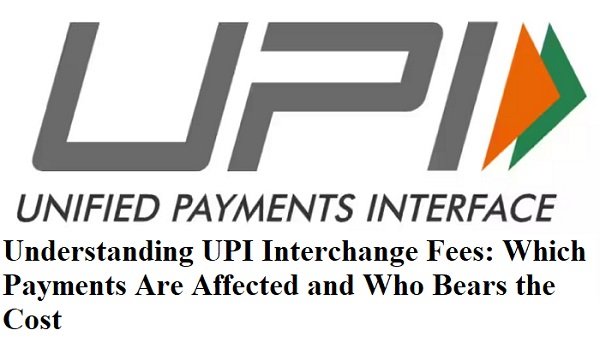Can you provide an overview of the NPCI’s new UPI interchange fee policy that will be implemented from April 1, 2024, and how it will affect users and merchants in India?
The National Payments Corporation of India (NPCI) has announced that certain United Payments Interface (UPI) transactions made via prepaid instruments, such as wallets, will attract an interchange fee of up to 1.1 percent for certain merchant payments from April 1, 2024. The interchange fee will be levied only on merchant payments of above Rs 2,000 to specified merchant categories, according to a circular by NPCI dated March 24, 2024. However, there will be no fee if the transaction amount is up to Rs 2,000. The interchange fee will be applicable on specified categories of merchants such as online merchants, large merchants, and small merchants for transactions of over Rs 2,000. Interchange fees are transaction fees that the merchant has to pay whenever a customer processes a transaction.
Only certain merchant transactions made by prepaid payment instruments will attract the interchange fee. Wallets, smart cards, vouchers, and magnetized chips come under prepaid payment instruments. P2P and P2PM transactions will not be affected by the new policy. Users will not have to pay any interchange fee.
The interchange fee will vary in the range of 0.5 percent to 1.1 percent, based on the merchant category codes. Smaller shopkeepers will not be impacted, while medium-category shopkeepers will have to bear this cost only on transactions of above Rs 2,000. However, high-value transactions will be impacted, and it will depend on the merchant whether they want to absorb the higher costs. If merchants decide to pass the higher cost to customers, then they will be impacted.

This decision is expected to bring in much-needed revenue for payment service providers, who have been struggling to maintain profitability due to the low transaction fees on UPI transactions. However, it may also discourage merchants from offering UPI as a service to all customers, limiting their usage.
The interchange fee is a fee paid by the merchant’s payment service provider to the customer’s payment service provider for processing a transaction. In the case of UPI transactions made via prepaid payment instruments, the interchange fee will be paid by the merchant’s payment service provider (such as PhonePe, Paytm, Amazon Pay, etc.) to the customer’s payment service provider (such as the customer’s bank) for transactions above Rs 2,000 to specified merchant categories.
The NPCI has stated that only certain merchant transactions made by prepaid payment instruments will attract the interchange fee, and the fee will vary based on the merchant category codes. For example, categories such as fuel, education, agriculture, and utility payments will have an interchange fee of 0.5%, while convenience stores and specialty retail outlets will have an interchange fee of 1.1%.

It is important to note that users do not have to pay any interchange fee. The cost of the fee will be borne by the merchant’s payment service provider, who may decide to absorb the cost or pass it on to the merchant. This may impact high-value transactions, and ultimately, the cost may be passed on to the customers.
The NPCI has also asked prepaid payment instrument issuers to pay a wallet-loading service charge of 15 basis points (0.15%) to the remitter bank for recharging a wallet with over Rs 2,000. This means that if a customer recharges their Paytm or PhonePe or Amazon Pay wallet with more than Rs 2,000, the wallet issuer (such as Paytm) will pay a wallet-loading service charge of 0.15% to the bank.
It is important to note that customers do not have to pay any additional fee to recharge their wallets to make UPI transactions yet. However, if wallet issuers decide to pass on the 15 bps service fee, loading wallets could cost more.